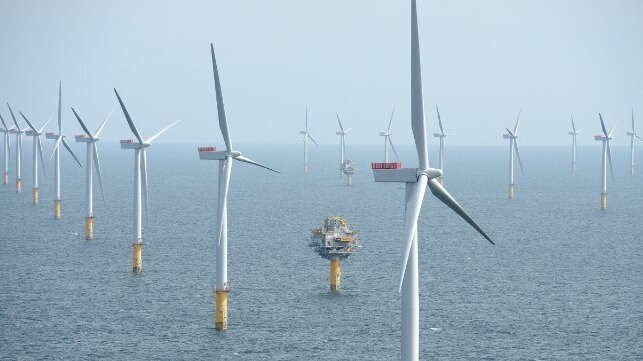Blade Failure at UK Wind Farm Due to Commissioning Process Says GE Vernova

The failure of a blade at the under-construction Dogger Bank offshore wind farm in the UK was due to the commissioning process reports GE Vernova. The company is ruling out an installation or manufacturing issue which were blamed for other blade failures earlier this year at the Dogger Bank Wind Farm and Vineyard Wind 1 in the United States.
Dogger Bank reported on August 22 that it was aware of a blade failure at one of the turbines in the first section of the wind farm which is currently under construction and undergoing commissioning. GE Vernova was quick to term it an “isolated blade event,” while also commencing an investigation into the root cause.
“GE Vernova analysis has established that during the commissioning process being performed by GE Vernova, the turbine was left in a fixed and static position, rendering it vulnerable during a subsequent storm with high winds,” Dogger Bank said in a statement released on August 30.
SSE, which is leading the development in a partnership with Equinor and Norway’s Vargrønn, elaborated that the turbine rotor was locked in place and the yaw system, which orients the rotor towards the wind, was disabled, during the commissioning. They believe that it left the blade vulnerable during a storm that hit the area. GE Vernova is taking corrective actions to eliminate this risk.
Dogger Bank reports the site remains restricted. Installation activities however will restart they said in the coming days. Dogger Bank A is located approximately 80 miles off the northern English coast.
Another blade on the GE Vernova turbine broke apart at the U.S. offshore wind farm in July. In that case, the company later said that it believed it was a manufacturing issue with adhesion and said it should have been caught by quality control. Installation was suspended at the Vineyard Wind 1 site while GE Vernova reported it would be checking the blades for the wind farm for a similar problem.
Debris from the U.S. turbine blade fell into the ocean and parts washed ashore on Massachusetts beaches causing widespread concern which was exploited by detractors of the industry. Towns impacted by the clean-up were seeking compensation from the wind farm. U.S. regulators however have agreed that work on the wind farm including subsea rock installation activities for the Cable Protection System could proceed as well as the installation of the final 15 monopiles for the wind farm which will consist of 62 turbines.

that matters most
Get the latest maritime news delivered to your inbox daily.
Dogger Bank also suffered another blade incident in May 2024. In that case, it was determined to be an installation-related problem that damaged the blade. It was replaced as the work continued.
GE Vernova reports it continues to investigate. However, it is now confident that the issues at Dogger Bank and Vineyard Wind 1 were unrelated.
